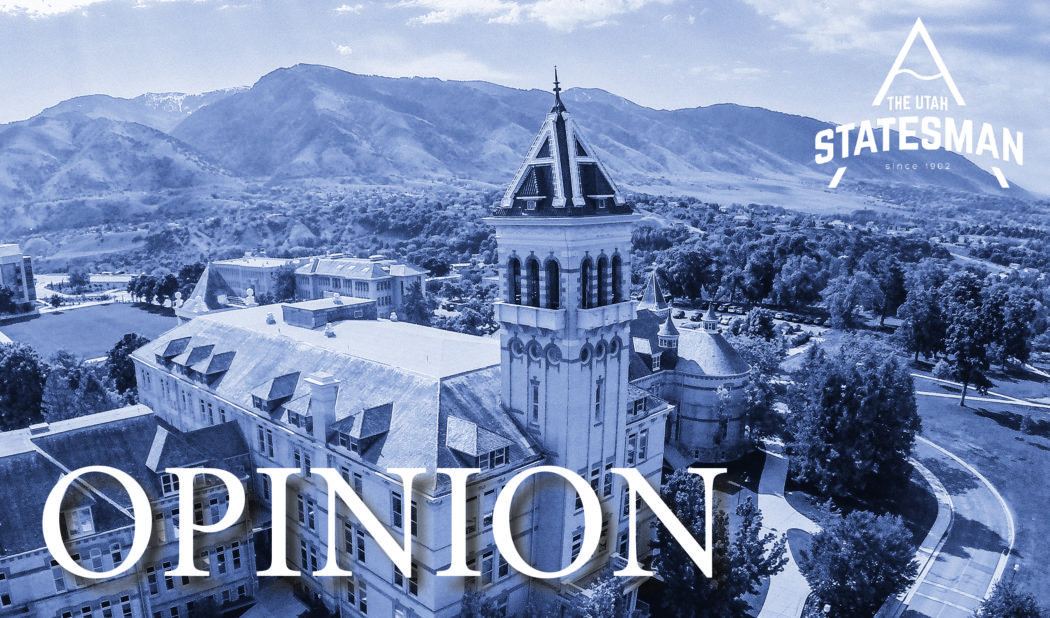COLUMN: The truth about privilege
Editor’s Note: To submit a response to this column, or submit a letter to the editor on a new topic, email your submission to opinion@usustatesman.com
If you are reading this article, you are probably someone who is very privileged — more privileged than billions of other people on this Earth — and this should be our starting point.
We all experience privilege; having the opportunity to attend university and expand our lives and minds is not a possibility for a vast majority of humans.
Now, let’s accept privilege exists and that it is uncomfortable and socially harmful, even to its benefactors. I believe that the privileged must listen. Those who aren’t privileged must be patient and kind to those who are genuine in their curiosity because it is in the best interest of all of us to learn more about each other. Exercising our capacity for empathy is one of humanity’s greatest qualities.
From here, our point of privilege, we experience different lives. In this country and society this is reflected in institutional treatment between genders, race, and wealth, among others. And in the long run, the differences only benefits those at the top of the social pyramid.
Some examples of privilege:
A white person will often have better access to healthcare, to bank and mortgage loans, and to education. Statistics show that black people are approved at half the rate of their white counterparts.
And there are institutions that affect people of color, in particular.
Remember Flint, Mich., that largely black community that had lead in its drinking water? The crisis began in 2014, but the city has only in recent months declared the water safe to drink. At peak levels, the lead could have hospitalized a child with one glass of water at 13,000 parts per billion. Lead is a neurotoxin that causes increases in violent behavior and decreased IQ in children. Worse still, many in Flint still don’t believe their water is safe to drink.
A Mother Jones article by Eli Day highlighted the disparity of intuitional treatment of others: “Black people make up nearly 40 percent of America’s incarcerated population and are more than five times as likely as whites to be behind bars,” the article read.
This is what racial and gender privilege ultimately accomplishes — isolation, resentment and perpetuation of myths about generalized groups of people. And a divided populace is weak and undermines democracy.
Why privilege isn’t always an advantage:
It may be hard for you to see how you are privileged, even if your life isn’t particularly easy. You may not feel privileged if you are paying school out of pocket, are in debt, sharing a room or struggling to gain friends. Your privilege might not keep you from getting an MIP, or from going bankrupt or from getting fired — you might not see your own privilege.
You may be able to get out of that speeding ticket, or have a family that will be able to pay your bail. People on the street might not find you suspicious or threatening or you might get paid more for the same work others do.
Even though your privilege isn’t your fault, it is your responsibility to use it well. That’s why you should use your privilege in a positive and productive way by listening, learning and accepting others experiences that differ from yours.
If you have learned to relate to those different than you, flex that unsubstantiated credibility to help others. If you see racism, sexual harassment or coercion, bigotry or general poor behavior toward others, make sure you are checking on the person who is experiencing the victimizing behavior.
Those of you who experience the many institutional, racial and gender slights that society dishes out, if you consider yourself an activist, or simply would like to improve collective experience, try to help the privileged others understand your difficult experience. If you are an activist, “it is not my job to educate you” can’t be a commonly adopted stance.
Yes, there are many people out there who have no interest in having good faith conversations with you; those people should be dismissed because nothing productive will come from arguing. But be very careful who you dismiss because, as a group, we can’t afford to miss an opportunity to gain an ally, to experience empathy and connection with those who you or I tend to see as alien and as wholly unrelatable. Our aim should be to increase social cohesion for it’s no secret our society is becoming more divided politically, socially, and economically.
Instead of jaded cynicism try believing you can help bridge the societal gaps by giving a hand, showing solidarity and participating in building a positive community that has room for all ranges of experience.
Diego Mendiola is a senior writing for the Utah Statesman’s news vertical. Contact him with feedback at diego.mendiola.93@gmail.com.

